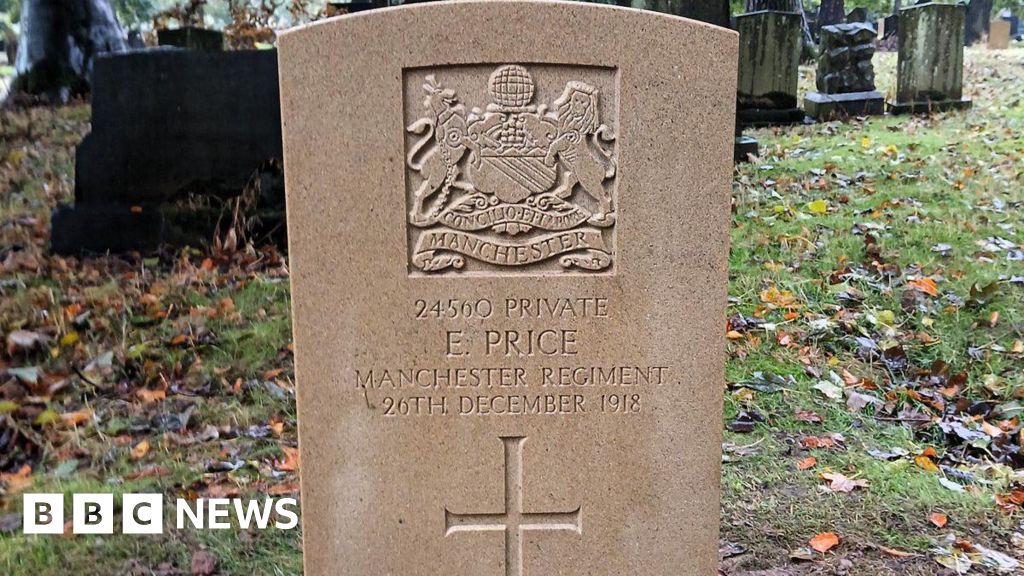
A new gravestone has been erected for a World War One soldier who died as a result of the after effects of a gas attack and heart disease – caused by infections contracted in the trenches.
The Commonwealth War Graves Commission (CWGC) said “unfortunately” it had been unable to trace any descendants of Private Edward Price from Atherton, Greater Manchester.
Private Price, 32, whose service number was 24560, was buried in Leigh Cemetery following his death on 26 December 1918 – just over month after the war ended.
A CWGC spokesman said: “Private Price has now been recognised as a Commonwealth war casualty and the commission will now care for his grave in perpetuity.”
He added: “Unfortunately there was no response to an appeal for relatives.”
Private Price, of the Manchester Regiment was a coal hewer – a miner who cut coal from a coal seam using hand tools like a pick and shovel – prior to World War One.
He enlisted in May 1916 and went on to serve with the Mediterranean Expeditionary Force.
Like other soldiers in the war, he experienced gas attacks in March and May 1918.
After the attacks, he was sent back to England in June and admitted to Middlesex War Hospital for treatment where he was found to be suffering from “trench fever” and valvular disease of the heart (VDH).
‘Trench fever’
Both were common conditions for soldiers returning from the front lines and as a result of the appalling living conditions they experienced in the trenches.
So-called “trench fever” was caused by the transmission of body lice, which infected armies across the Western and Eastern fronts.
VDH, which led to Private Price’s October 1918 discharge from the Army, referred to some form of heart malfunction which also affected soldiers.
He was awarded the 1915 Star, Victory and British War Medals to recognise his overseas service.
The soldier left behind a widow, Martha, and four children.

